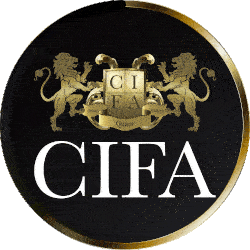


"The Roadmap to Becoming an Investment Advisor: The Significance of the Investment Advisor Certificate"
Becoming an investment advisor requires a combination of education, experience, and professional certifications. In many countries.
One of the key certifications for investment advisors is the Investment Advisor Certificate. This certificate holds significant importance and serves as a roadmap for individuals aspiring to work in the field of investment advisory.
Let's explore the significance of the Investment Advisor Certificate and the steps involved in becoming an investment advisor.
Understanding the Role of an Investment Advisor:
An investment advisor is a professional who provides financial advice and investment management services to individuals, corporations, or institutions. They analyse clients' financial goals, risk tolerance, and investment preferences to develop personalised investment strategies.
Education and Qualifications:
To become an investment advisor, you typically need a solid educational background in finance, economics, business administration, or a related field. A bachelor's degree is often the minimum requirement, although some positions may require a master's degree or higher.
Gaining Relevant Experience:
Obtaining practical experience in the financial industry is crucial for aspiring investment advisors. Many professionals start their careers as financial analysts, research associates, or assistant advisors at investment firms, banks, or brokerage houses. This experience helps them develop a strong foundation in investment analysis, portfolio management, and client interaction.
Professional Certifications:
The Investment Advisor Certificate is a professional certification that validates an individual's expertise and competence in investment advisory services. In the United States, the most recognised certification for investment advisors is the Certified Financial Planner (CFP) designation. To earn the CFP designation, candidates must meet specific educational requirements, pass a comprehensive exam, and fulfil experience criteria.
Certifications vary according to the country you intend to operate in, for example the UK falls within the realm of the FCA - Financial Conduct Authority and the PRA the Prudential Regulatory Authority.
Compliance and Regulation:
In addition to obtaining the Investment Advisor Certificate, investment advisors must comply with regulatory requirements specific to their jurisdiction.
Continuous Professional Development:
The financial industry is constantly evolving, and investment advisors are expected to stay updated with the latest trends, regulations, and best practices. Ongoing professional development through continuing education courses, seminars, and industry conferences is essential for investment advisors to maintain their competence and ensure they provide high-quality advice to their clients.
The CIFA Investment Advisor Certificate:
The CIFA programme is designed to enhance advisors' knowledge and understanding of financial best practices, legal obligations, and ethical considerations. It covers various topics such as investment policy statements, asset allocation, risk management, due diligence, and monitoring of investment options. The CIFA certification equips advisors with the necessary tools to serve as trusted advisors for their clients.
Obtaining the CIFA Certification:
To earn the CIFA Investment Advisor Certificate, candidates must pass three specific examinations to be awarded the Investment Advisor Certification.
CIFA Exam: After completing the required coursework, candidates must pass a comprehensive exam to demonstrate their understanding of fiduciary responsibilities and investment advisory concepts.
The exam typically covers a broad range of topics related to investment management including regulatory duties and obligations to maintain a set standard of professional integrity.
Benefits of the CIFA Certification:
The CIFA Investment Advisor Certificate offers several benefits to investment advisors, including:
Enhanced Knowledge:
The CIFA programme provides in-depth knowledge and expertise in core responsibilities, enabling advisors to effectively fulfil their obligations to act in the best interests of their clients.
Credibility and Trust: The CIFA certification enhances an advisor's professional credibility and instils trust among clients, as it signifies a commitment to fiduciary excellence and adherence to ethical standards.
Specialisation in Financial Services Roles: The CIFA designation distinguishes investment advisors who specialise in working with retirement plans and institutional clients, which can open up new opportunities and client relationships on a private and corporate basis.
Compliance with Regulatory Standards: By obtaining the CIFA certification, advisors demonstrate their commitment to upholding fiduciary standards and regulatory requirements, providing assurance to clients and regulatory bodies.
Ongoing Professional Development:
Similar to other investment advisor certifications, maintaining the CIFA designation requires ongoing professional development. Advisors must stay updated with industry trends, regulatory changes, and best practices through continuing education.
This ensures that advisors with the CIFA certification continue to provide clients with high-quality, client - focused investment advice.
The CIFA Investment Advisor Certificate offers investment advisors a specialised focus on Professional responsibilities and is particularly relevant for those working with retirement plans and institutional clients.
Obtaining the CIFA certification demonstrates a commitment to excellence, which enhances an advisor's credibility, and equips them with the knowledge and skills to serve as trusted investment advisors.
Investment advisors interested in specialising in fiduciary services should consider pursuing the CIFA Investment Advisor Certificate and staying current with ongoing professional development.
0 comments